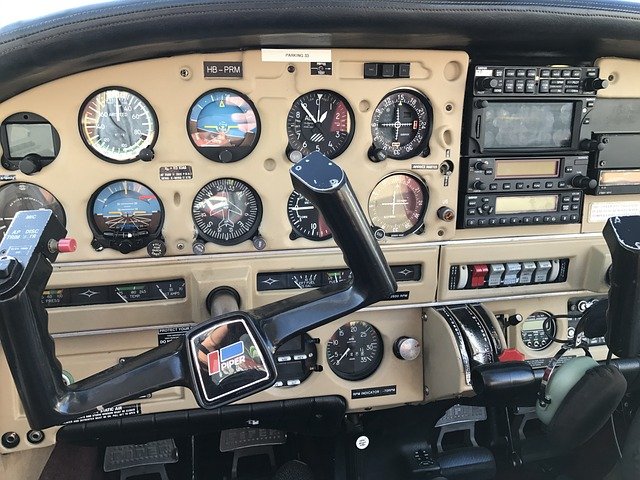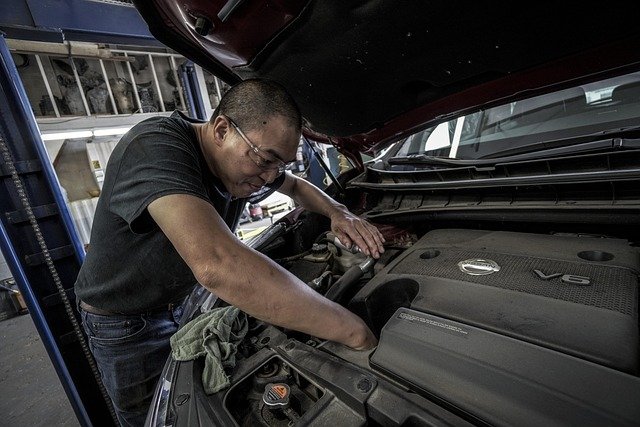Aviation Training Programs for English Speakers in the Netherlands
As interest in aviation continues to rise in the Netherlands, various training programs are available for individuals who speak English. These programs aim to provide insights into the wide range of roles within the aviation sector, as well as the specific conditions and requirements for those looking to pursue a career in this field.

The aviation industry in the Netherlands represents a thriving sector with significant opportunities for both Dutch and international professionals. As a global transportation hub hosting one of Europe’s busiest airports—Amsterdam Schiphol—the country maintains high standards in aviation education and training. For English speakers looking to enter this dynamic field, the Netherlands offers comprehensive training programs that adhere to international aviation standards while providing instruction in English, eliminating language barriers for international students and professionals.
Training Programs Available for English Speakers in Aviation
The Netherlands hosts several internationally recognized aviation training institutions that cater specifically to English-speaking students. These include flight academies like the KLM Flight Academy, CAE Oxford Aviation Academy Amsterdam, and the Dutch Flight Academy, all of which offer commercial pilot training programs conducted entirely in English. Beyond pilot training, institutions such as the Amsterdam University of Applied Sciences provide bachelor’s degrees in aviation engineering and management with English-language instruction tracks.
Technical training programs are equally accessible, with organizations like the Aircraft Maintenance & Training School (AMTS) offering aircraft maintenance engineering courses that follow European Aviation Safety Agency (EASA) standards. These programs typically range from short-term certifications to multi-year degree courses, with many incorporating practical training at actual aviation facilities to ensure graduates are job-ready upon completion.
Understanding Roles and Responsibilities in Aviation Careers
Aviation careers encompass a diverse range of specializations, each with distinct responsibilities and training requirements. Commercial pilots undergo rigorous training that includes theoretical knowledge instruction, simulator sessions, and actual flight hours to earn their licenses. The training covers aircraft systems, navigation, meteorology, and emergency procedures, culminating in various ratings such as multi-engine and instrument ratings.
Air traffic controllers, another critical role, receive specialized training in managing aircraft movements safely and efficiently. Their education involves extensive simulator practice using real-world scenarios and traffic patterns specific to Dutch airspace. Aircraft maintenance technicians, meanwhile, focus on developing the technical expertise needed to inspect, repair, and maintain aircraft according to strict regulatory standards.
Aviation management positions require a blend of industry-specific knowledge and business acumen, with training programs covering areas such as airport operations, airline economics, safety management systems, and aviation law. Many of these programs incorporate internships with airlines or airports operating in the Netherlands, providing valuable industry exposure and networking opportunities.
Conditions and Requirements for Aviation Training in the Netherlands
Admission to aviation training programs in the Netherlands typically requires a strong educational background, particularly in mathematics, physics, and English proficiency. For pilot training, applicants must pass stringent medical examinations to obtain a Class 1 Medical Certificate from an aviation medical examiner. Most flight academies also conduct their own assessment tests, evaluating candidates’ aptitude, coordination, and psychological suitability for aviation careers.
For non-EU citizens, obtaining the proper visa is an essential requirement. Most aviation students qualify for study visas, though specific requirements may vary based on program duration and type. Many institutions assist international students with visa application processes and provide guidance on residency permits.
Financial considerations are significant, as aviation training—particularly pilot training—represents a substantial investment. However, some institutions offer scholarship opportunities or financing arrangements to help offset costs. Additionally, candidates should consider the time commitment required, as comprehensive programs like commercial pilot training can take between 18-24 months of full-time study.
Integration of International Aviation Standards in Dutch Training
The Netherlands adheres to European Union Aviation Safety Agency (EASA) regulations, which are recognized globally and often considered among the most rigorous aviation standards. This adherence ensures that qualifications earned in the Netherlands are transferable to many other countries, particularly within Europe and regions that recognize EASA certifications.
Training institutions regularly update their curricula to reflect changes in international aviation regulations and emerging industry practices. Many programs incorporate advanced simulation technology that replicates actual operating conditions, allowing students to develop proficiency in a controlled environment before progressing to real aircraft or workplace settings.
The integration of Safety Management Systems (SMS) principles throughout training programs reflects the industry’s emphasis on proactive safety cultures. Students learn not only technical skills but also human factors concepts, crew resource management, and threat and error management—all critical components of modern aviation safety frameworks.
Cost Structure of Aviation Training Programs in the Netherlands
Aviation training programs in the Netherlands vary significantly in cost depending on the type of qualification sought. Commercial pilot training represents one of the most substantial investments, typically ranging from €60,000 to €130,000 for a complete zero-to-commercial pilot program. This includes ground school, flight hours, simulator sessions, examinations, and course materials.
| Program Type | Institution | Approximate Cost (EUR) |
|---|---|---|
| Commercial Pilot License | KLM Flight Academy | €100,000 - €130,000 |
| Commercial Pilot License | CAE Oxford Aviation Academy | €80,000 - €110,000 |
| Aircraft Maintenance (B1/B2) | Aircraft Maintenance & Training School | €25,000 - €35,000 |
| Aviation Management Bachelor’s | Amsterdam University of Applied Sciences | €8,000 - €15,000 per year |
| Air Traffic Control Training | Entry Point North Academy | €40,000 - €60,000 |
Prices, rates, or cost estimates mentioned in this article are based on the latest available information but may change over time. Independent research is advised before making financial decisions.
Technical training programs such as aircraft maintenance engineering typically cost between €20,000 and €40,000 for complete certification courses. Academic programs like aviation management degrees follow standard university tuition structures, with higher rates for non-EU students (approximately €8,000 to €15,000 per academic year) compared to EU residents.
Many institutions offer payment plans that allow students to spread costs over the duration of their training. Additionally, some airlines operate cadet programs that provide partial or full sponsorship in exchange for employment commitments following graduation, though these are highly competitive and limited in availability.
Career Prospects After Completing Aviation Training
Graduates of aviation training programs in the Netherlands enter a global job market with opportunities spanning various sectors. The country’s strategic position as a European aviation hub creates local employment possibilities with airlines like KLM Royal Dutch Airlines, Transavia, and various cargo operators. Maintenance technicians find opportunities with aircraft maintenance repair and overhaul facilities (MROs) such as KLM Engineering & Maintenance.
The transferability of EASA qualifications allows graduates to pursue careers throughout Europe and in countries that recognize European certifications. Many training institutions maintain relationships with airlines and aviation companies, facilitating recruitment opportunities for their graduates. Some programs include placement assistance services that help students transition from training to employment.
Continuing education plays an important role in aviation careers, with many professionals pursuing additional ratings, endorsements, or management qualifications throughout their careers. The foundation provided by Dutch aviation training programs equips graduates with the technical knowledge and adaptability needed to evolve with the industry’s technological advancements and regulatory changes.




